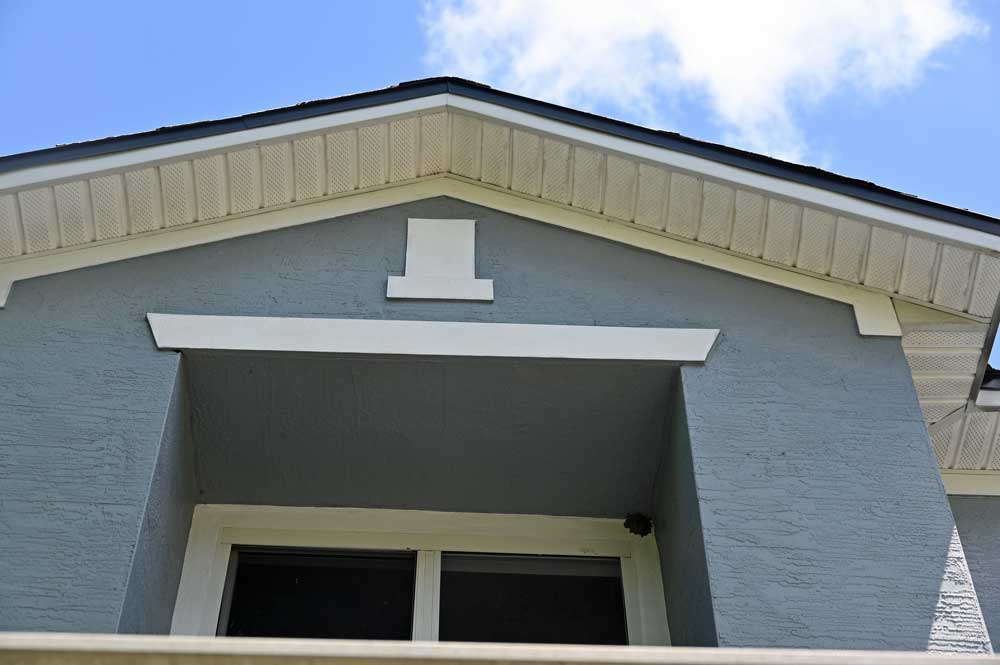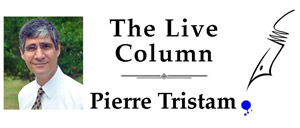
In their continuing war on the property tax, Florida’s Republican lawmakers added Amendment 5 to the November ballot to index the homestead exemption to inflation.
 A yes vote means that every year, the second of two $25,000 exemptions will increase according to the previous year’s inflation rate. If inflation rose 3.5 percent this year (roughly where it is now), your homestead exemption would increase by $875. Cities and counties would lose over $100 million a year by 2028, more after that. School taxes are not affected because the second homestead exemption doesn’t apply to them.
A yes vote means that every year, the second of two $25,000 exemptions will increase according to the previous year’s inflation rate. If inflation rose 3.5 percent this year (roughly where it is now), your homestead exemption would increase by $875. Cities and counties would lose over $100 million a year by 2028, more after that. School taxes are not affected because the second homestead exemption doesn’t apply to them.
Intuitively, an increase makes sense: why not adjust for inflation? One wishes lawmakers thought the same way about the gas tax or unemployment benefits, neither of which have been increased in three decades. But the homestead exemption doesn’t need another fattening. It needs reforming. It’s unfair and punishing in its current form. It isn’t a tax cut. It’s another tax shift. The inflation scheme will deepen disparities at the expense of local governments, businesses, renters and agricultural properties, all of whom will have to make up for lost revenue.
The homestead already has a built-in hedge against inflation. It’s known as the Save Our Homes amendment. Voters approved it in a 1992 referendum. It limits annual increases in a home’s taxable value to 3 percent or to the previous year’s inflation rate, whichever is lower. The longer you live in a homesteaded property, the less you pay when inflation is calculated. Someone who just moved in across the street may be paying double or triple what you pay, for a smaller house. We have absurd situations like that all over Palm Coast.
Take my street. I bought my 3,000-square-foot house in 2008 for the ridiculous price of $175,000. In 2011, it had a taxable value of $103,000. Its market value has since doubled. But my taxable value is only $11,000 more–$114,000. In constant 2011 dollars, my taxable value has fallen 18 percent, to $84,000. If my taxable value had kept up with inflation, it should have been $147,000, netting local governments their fair share of additional revenue.
Last year we paid $2,156 in overall taxes, less than in 2011, when we paid $2,149. In constant, 2011 dollars, we paid $1,580. In other words, we paid 27 percent less in taxes, when adjusted for inflation. That’s the purchasing power local governments lost from my taxes over those years: 27 percent. And you wonder why our governments sound like beggars and their services go wanting all the time.
My neighbors across the yard moved into their new, 2,300 square foot home last year. Smaller home, nearly three times the taxable value of mine: $280,000. They’re going to have a shock when they get their tax bill later this year: $5,200, or 140 percent more than mine. That’s the amount they’ll be paying from now on, since our system pretty much freezes our tax bills from the day we start paying them.
They’re homesteaded. Businesses and renters don’t get that exemption. Their taxes keep going up–yes, renters pay taxes, and in fact proportionately pay more taxes than the homesteaded–with only a 10 percent annual cap on taxable value. Commercial properties and renters are subsidizing everyone else’s artificially low taxes.
Homestead exemptions were designed to encourage home-ownership in difficult economies (the jury is no longer unanimous as far as whether owning is a good idea, let alone a possible idea for the young). Florida enacted its first homestead exemption for up to $5,000 in 1934, to counter the effects of the Depression. It was increased to $25,000 in 1980. The state increased the sales tax from 4 to 5 percent two years later, with half the revenue from the additional penny pledged to cities and counties to make up for revenue lost from the larger exemption.
In 2008, voters approved a doubling of the exemption, to $50,000. The lost revenue was not made up, compounding what revenue was lost after 1992 when Save Our Homes passed. Numerous additional and unnecessary exemptions have increased the benefit since–for the elderly, for the disabled, for an arbitrary set of “essential” workers, as if, say, bank tellers and teachers were lesser taxpayers than veterans.
As tax schemes often do, those homestead exemptions have turned into gifts to those who need them least. They’re adding to disparities. They’re discouraging mobility for those who are homesteaded (who wants to lose hundreds of thousands of dollars in accumulated “tax-protected” value?) and preventing young homebuyers from ownership. It all reduces economic vitality and exacerbates inequality. The exemptions have metastasized into tumorous subsidies that choke economic activity and government revenue while disproportionately burdening the non-homesteaded.
And now Amendment 5. Flagler County Property Appraiser Jay Gardner calls it “unnecessary.” It’s an understatement. It’s another pander that will cheat local governments of yet more resources while indulging homeowners who’ll turn up at the next council meeting to bitch and moan about broken roads and crappy services. That’s precisely what a Yes vote on Amendment 5 will get you more of.
![]()
Pierre Tristam is the editor of FlaglerLive. A version of this piece airs on WNZF.









